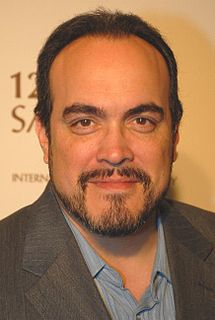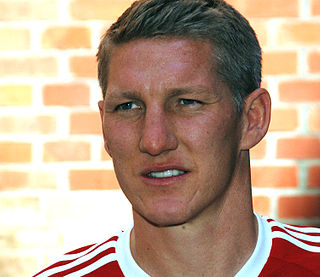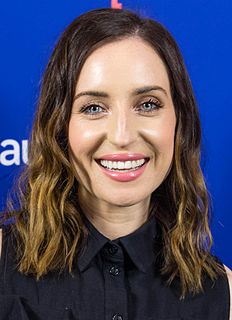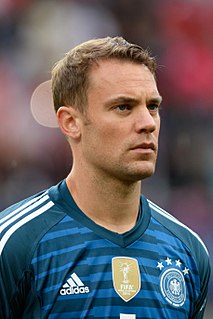A Quote by David Zayas
Part of an actors job, in my opinion, is adjust to the characteristics of the director and try to understand to how he tries to work.
Quote Topics
Related Quotes
Every film you work on is different, and that's part of what it's like for anybody who works on a film, is to learn how to work with others. Learn from top to bottom. Actors have to learn how to work with the director and the director has to learn how to work with actors, and that's not just those two departments.
The Argentinians provoke and are always whingeing to the referee to try and change his opinion. It starts before the match. You see their body language, how they gesticulate, how they try to influence the referee. That is not part of the game. That is a lack of respect. It's their mentality and character, and we'll have to adjust.
Actors, I think, are all the same. Both Korean actors and American actors are all very sensitive people, and they are all curious to know what the director thinks of them and how they are evaluated, and they try to satisfy the director. And they like it if you listen carefully to their opinions and accept them.
My job as an actor is to try to do what the director wants me to do. I'm going to do everything I can to incorporate that note and make it work. If it doesn't work, I'll try this kind of thing, and "How do you feel about that?" If you are at odds with the director, neither one of you is going to get anywhere. You really do have to be able to make both of you happy. Even when I was younger, there were times when you have to find a way to make it work for both of you.
I aspire to be an instrument of the director. I'm happiest like that. The stronger the director, the more I'm willing to give them. It's not just about admiration for their films, it's how they deal with you, and whether they get you or the way you work. If they don't, you better adjust your way of working to suit them. I want to work with people who are good at what they do, and people who are passionate. As you get older, you suffer fools less easily. That's why there's all those cranky character actors. I'm an exception. I'm a sweetheart.
The actor has to have some degree of craft, along with the talent. No one tries to laugh except bad actors. No one tries to cry except bad actors. How a character hides his feelings tells us who he is. Most people don't know that, and most actors don't do that. Therefore, there are a lot of actors who put me to sleep, that are considered good actors, but they're predictable and boring. I know how the scene is going to end before it ends.
Your job, as an actor, is never to just do what you're told. That's boring, and life is too short. It's your job to bring something, and it will either be to other people's taste or your own taste, and you have to try things out. Actors say, "Well, as long as the director's happy," but I don't believe that and I don't agree with that. I want the director to be happy, but if I'm not happy, I won't sleep at night.
My teachers believe that the creative producer's job is to service the vision of the director, to stay within schedule and budget, and to get the studio what they need, but you work for the director to get their vision on the screen. That's not how everyone approaches producing, but it is certainly how directors like you to approach producing. How I was brought up is that my job is to help you make the movie you want to make.
As an actor, it's always important to understand what the director is after. That, to me, is my job. When I'm acting, I like to ask a lot of questions and understand exactly why the director is doing what they're doing, so that I can provide him or her with the ingredients that they need to get the scene that they want. It's not to challenge them, in any way. It's just so that I can do my job best.



































